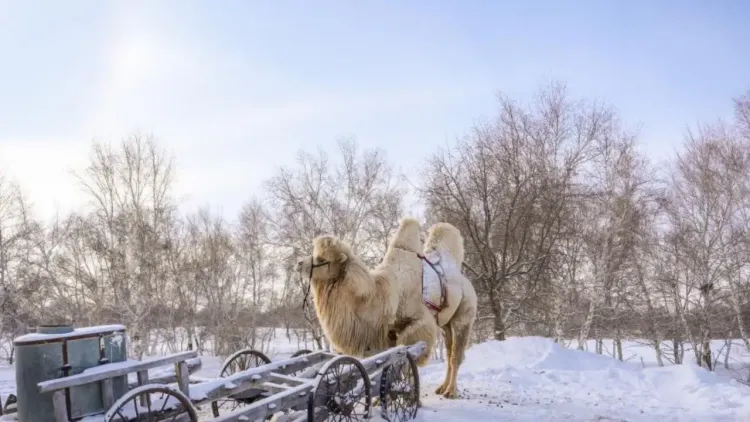Intense Winter Conditions Impact Multiple Provinces in Mongolia

Ulan Bator, Jan 13 (NationPress) A total of 18 soums (administrative subdivisions) across seven provinces in Mongolia are currently facing severe winter weather conditions, as reported by the National Agency for Meteorology and Environmental Monitoring on Monday.
The affected provinces include the western regions of Bayan-Ulgii, Uvs, Khovd, and Zavkhan, along with the central province of Tuv.
Earlier this month, the agency had issued a warning that approximately 40 percent of the nation’s land area is at a high risk of experiencing the extreme winter phenomenon known as 'dzud' this season.
The term dzud refers to a harsh winter in Mongolia that leads to significant livestock mortality due to frozen ground or snow-covered pastures.
According to a recent risk assessment regarding dzud, it was noted that at least 40 percent of the nation faces a high risk of dzud this winter, while 20 percent is classified as medium risk.
The weather agency has indicated that many regions within the five western provinces, including Bayan-Ulgii, Uvs, Khovd, Zavkhan, and Gobi-Altai, are categorized as high or very high risk.
Furthermore, certain areas in the northern provinces of Khuvsgul, Selenge, and Bulgan, as well as the central provinces of Arkhangai and Uvurkhangai, along with smaller regions in the southern provinces of Bayankhongor and Dundgovi, also face significant risks.
The agency has urged local authorities and nomadic herders to prepare for the challenges that may arise due to the harsh winter conditions.
Mongolia, recognized as one of the last major nomadic nations globally, experiences extreme winters largely influenced by the Siberian high-pressure system.
Last winter, the country was hit by its most substantial snowfall in fifty years, resulting in a severe dzud that caused the death of millions of livestock.
On December 23, Mongolia's National Emergency Management Agency (NEMA) issued a severe weather alert for numerous regions, forecasting strong winds and heavy snow.
The anticipated blizzards are likely to affect the western, central, and southern Gobi provinces, leading to poor visibility and hazardous road conditions. NEMA has advised citizens, particularly nomadic herders and drivers, to remain vigilant and take preventive actions against possible disasters.
The combination of bitterly cold temperatures and erratic weather patterns frequently results in devastating outcomes for both human populations and livestock.
An unfortunate instance of such risks occurred when over 10 individuals, primarily nomadic herders, tragically lost their lives in November 2023 due to heavy snowfall and blizzards in the central province of Tuv and the eastern province of Sukhbaatar.
During the previous winter, nearly all 21 provinces endured extreme winter conditions, accompanied by record-breaking snowfall—the highest since 1975. Approximately 90 percent of the country was blanketed in snow reaching up to 100 centimeters deep, resulting in the death of an estimated 8 million livestock.










